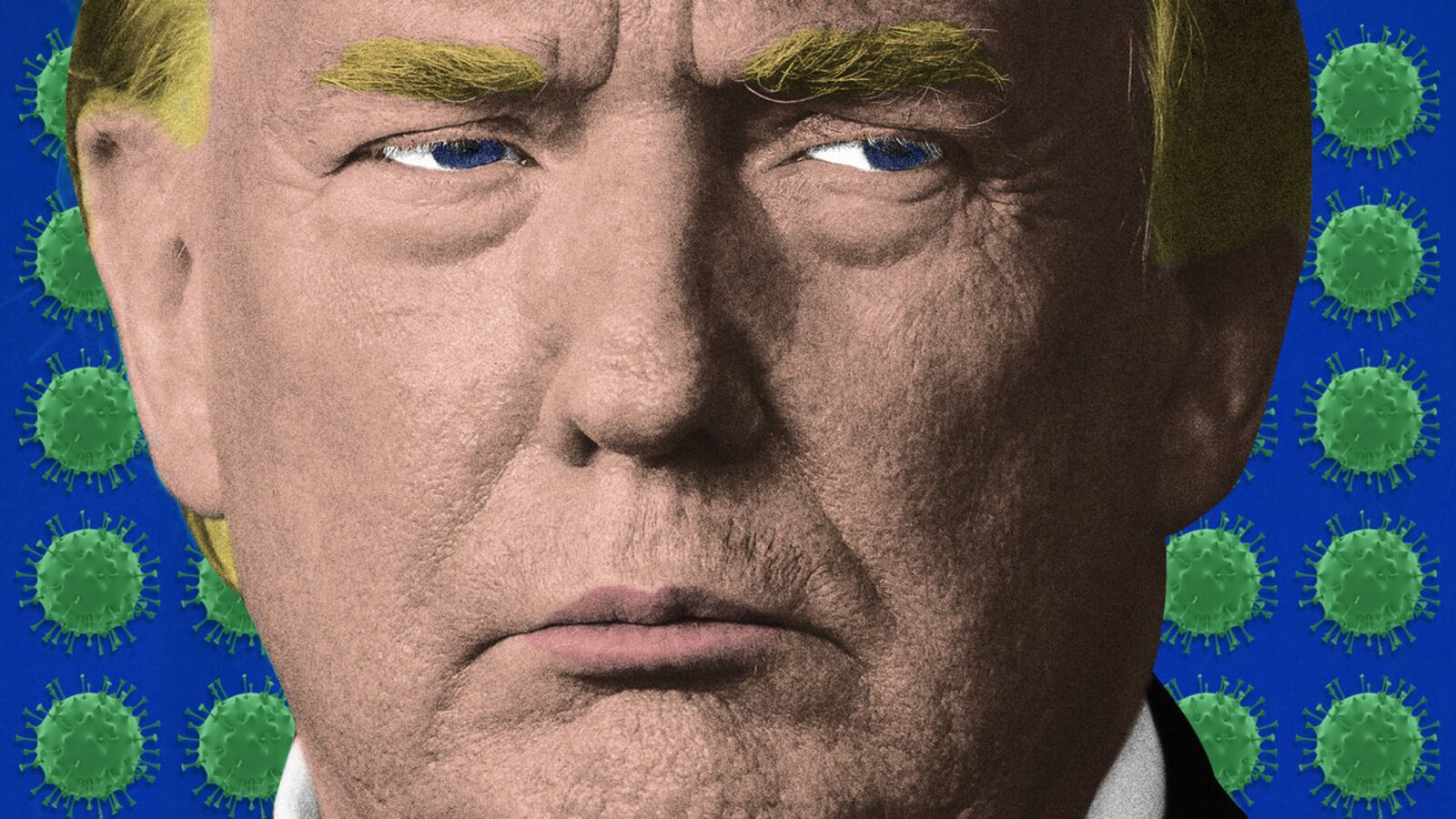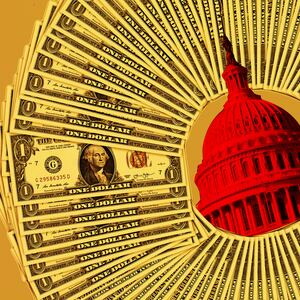Even a global pandemic and economic crisis isn’t enough to break President Trump’s perception of the Democratic House as a den of haters and losers who care more about hurting him than about helping the American public.
Asked on Tuesday why he wasn’t permitting members of his coronavirus task force to testify in front of the House, Trump responded that the chamber is a “set-up” that’s full of “Trump haters.”
“They,” said Trump, “frankly, want our situation to be unsuccessful, which means death.”
It was a remarkable bit of open political retaliation that not only undercut the White House’s official line—that individuals like Dr. Anthony Fauci were too busy fighting the pandemic to spend hours before Congress—but also set up a situation where only the president’s own party would be in charge of hearings into his conduct. Indeed, shortly after Trump spoke, the Republican-run Senate Health panel announced that Fauci would be testifying there next week.
“It’s so political. I’ve never seen anything like it,” said Rep. Donna Shalala (D-FL), who serves as the House Democratic representative on the not-yet-functional panel to oversee COVID-19 spending. “I can’t remember anyone preventing us from testifying in one house of Congress versus another… To not go to the People’s House is just—it’s stupid, and it’s dangerous.”
Congressional oversight has always been an irritant to the occupant of the White House. But rarely has a president so blatantly disregarded it when the context has been so non-partisan and the stakes so high. Even before the emergence of COVID-19, Trump’s defiance of Congress had prompted legal battles that promised to rearrange the long-term balance of federal power. But his insistence on continuing to snub the legislative branch in the midst of a pandemic has sparked an altogether new set of questions and frustrations.
“The fact that the president of the United States has directed those responsible for the federal response to avoid appearing before Congress is shocking, irresponsible, and will result in more loss of life,” said Rep. David Cicilline (D-R.I.). Democrats trying to understand the federal COVID-19 response, he said, are being “limited to what the president says” and what mid-level officials from the administration “tell us on a conference call.”
Privately, Democrats have grumbled that the party should have anticipated this situation. Just a few months ago, the administration staved off subpoena and document requests as part of the impeachment inquiry. With resolution of those matters still in the courts, leadership—the argument goes—should have demanded stronger oversight structures be put in place before trillions of dollars went out the door to prop up an imploded economy.
"[House Speaker Nancy] Pelosi has left Democrats largely invisible in negotiating COVID-19 legislative responses and sidelined at a moment that cries out for congressional oversight,” said Jeff Hauser, the founder and director of the Revolving Door Project, a public interest group. “An unleashed House could also make sure Trump's systemic errors are well understood and beyond dispute for the 70 percent of Americans who are not willfully indoctrinated by Fox News. Such public education is necessary to make sure the federal government is never again so unprepared for a mass tragedy.”
Those criticisms have been amplified as it’s become clearer that the oversight mechanisms in existence have been either undercut, brushed aside, or largely neglected.
There was, for example, no creation of a centralized database to show who received so-called Paycheck Protection Program loans that were meant to aid small businesses but also found their way to boutique hotels and publicly traded restaurant chains. A Democratic aide said that the presumption was that the Small Business Administration would release such information under provisions in existing law. But, the aide conceded, “they aren’t.”
The congressional panel tasked with tracking the trillions of dollars being lent out by the Federal Reserve and the Treasury Department was authorized six weeks ago. But it still lacks a chair and the appointed members can’t hire staff—rendering it basically non-functional.
Meanwhile, the president has sidelined or sacked independent inspectors general who have surfaced damning information about the administration’s COVID-19 response or were in a position to—while telling Congress he has the power to decide what lawmakers learn about the pandemic response, not a special IG assigned to the task.
And, while administration officials involved in the COVID-19 response appeared before lawmakers in the early stages of the pandemic, they have since gone silent. None has testified since March 12, when there were fewer than 1,000 cases of the virus in the U.S. And House Democrats told The Daily Beast that direct engagement with top officials has been inconsistent.
On April 15, for example, the administration cold-emailed a handful of Democratic lawmakers informing them they’d been selected to a congressional task force to advise Trump on reopening the economy. After an initial conference call the next day, no follow-up was scheduled until this week, when House members in the group were told there would be a second call with top Trump economic advisers Larry Kudlow and Kevin Hassett on Thursday. In the interim, administration officials instructed lawmakers to contact them with their three “best ideas” on economic responses—“like homework,” recalled an aide.
In the absence of traditional lines of oversight and cooperation, there has been improvising.
Bharat Ramamurti, Democratic Senate leader Chuck Schumer’s appointee to the new congressional panel, said that he was leaning on friends and associates with expertise in his issue areas. And though he continues to encounter absurdly commonplace hurdles (on Tuesday, his computer ran out of batteries because electricity in his neighborhood was down and he couldn’t venture elsewhere) he held out hope that the commission would soon have a chair and get its report done by May 9.
“The other unique thing about the oversight commission is all the members are appointed by the Congress,” Ramamurti told The Daily Beast. “Our committee is the only one immune from tampering by the president, which is why it is really important to get the chair in place as soon as possible.”
Meanwhile, outside groups are trying to reverse-engineer oversight by starting from the broadest set of data points and working their way back to the administration. Accountable.US, a nonpartisan oversight group, has filed nearly 200 public records requests and skimmed through hundreds of federal filings to see if publicly traded companies have nabbed PPP loans.
This still leaves gaping holes. And on those fronts, Democrats are scrambling to patch things up, with a group of lawmakers introducing legislation mandating disclosure of PPP loans and others calling for subpoenaing witnesses.
“They’re going to stonewall as much as they can,” Rep. Dan Kildee (D-MI) told The Daily Beast. “We can’t fold. We have to use the tools we have. We may have to issue subpoenas, and try every way we can to get the information we need.”
Some Democrats argue that the party’s most effective mechanism for forcing the Trump administration to comply with congressional oversight would be through the purse. But few believe that Pelosi will, or even could, effectively deploy such hardball tactics if the economic situation in the country remains dire. And so, the last hope is that the public pressure will become so overbearing that members of the Trump administration will see it as in their political self-interest to comply.
Already, one member—former BARDA program director Dr. Richard Bright—has agreed to testify before a House Democratic committee about a whistleblower complaint he filed detailing systematic missteps and misjudgements the administration made in the early stages of the pandemic. And it would not be unprecedented for the White House to eventually fold on others.
In 2013, the Obama White House refused to make available for testimony key figures involved in the botched rollout of the Affordable Care Act on grounds that their time fixing the website was too valuable to spend on the Hill. Under threat of subpoena, top technology officer Todd Park eventually agreed to testify in front of the GOP-led House Oversight Committee.
Two professors—Mark J. Rozell of George Mason University and Mitchel A. Sollenberger of the University of Michigan at Dearborn—praised the move at the time as a worthy mitigation of tension between the two branches. Reached by The Daily Beast, both said a similar step from Trump would be warranted now.
“This is why you have a hierarchical organization,” Sollenberger told The Daily Beast. “They’re there to give voice to organizational needs, respond to Congress when it comes to the organizational issues at hand, the questions Congress has. This is how government works.”







